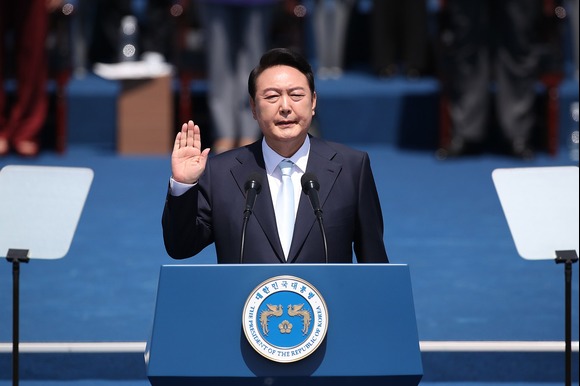South Korea’s former president, Yoon Suk-yeol, has been arrested for the second time and returned to solitary confinement, following his failed attempt to impose martial law in December last year.
The 64-year-old was detained on Thursday after a court in Seoul issued an arrest warrant, citing concerns that he might attempt to destroy evidence. He is now being held at the Seoul Detention Center—the same facility where he previously spent 52 days in custody before being released four months ago on technical grounds.
Yoon triggered a major political crisis on December 3 when he attempted to undermine South Korea’s civilian government. He deployed armed soldiers to the National Assembly in a bid to block lawmakers from voting against his martial law declaration.
His dramatic move made him the first sitting South Korean president to be taken into custody. He was arrested in a dawn raid in January after weeks of defying investigators, using his presidential security detail to avoid apprehension.
He was later released in March due to procedural issues. However, South Korea’s Constitutional Court ruled in April to remove him from office, setting the stage for a snap election in June, which brought current President Lee Jae Myung to power.
President Lee later approved sweeping legislation to initiate special investigations into Yoon’s actions related to martial law and other criminal allegations, including accusations involving his administration and his wife.
Earlier this month, the special counsel questioned Yoon regarding his resistance during the failed January arrest attempt and allegations that he authorised drone flights into North Korea to bolster his justification for declaring martial law. Yoon has continued to defend his decision, arguing it was necessary to “root out” what he described as pro-North Korean and “antistate” elements.
The latest arrest warrant allows authorities to detain Yoon for up to 20 days as prosecutors prepare formal charges, which are expected to include additional allegations.
Yun Bok-nam, president of Lawyers for a Democratic Society, told AFP that once indicted, Yoon could remain in detention for up to six months. “Immediate release is theoretically possible,” he said, “but in this case, the special counsel argues that the risk of evidence destruction remains high, and that the charges are already substantially supported.”
During a seven-hour hearing on the arrest request held on Wednesday, Yoon’s legal team argued that the detention was unjustified, pointing out that he no longer holds any official authority. Yoon himself addressed the court, expressing his sense of isolation, according to South Korean media reports.
“I’m now fighting alone,” Yoon said. “The special counsel is going after even my defence lawyers. One by one, my lawyers are stepping away, and I may soon have to fight this alone.”
Following his arrest, Yoon did not appear at the 10th hearing of his ongoing insurrection trial, which was scheduled for Thursday. His legal team cited health concerns and submitted a written explanation for his absence to the court, according to the state-run Yonhap news agency. His lawyers were present in his stead, the report added.
If convicted, Yoon faces the possibility of life imprisonment or the death penalty.






